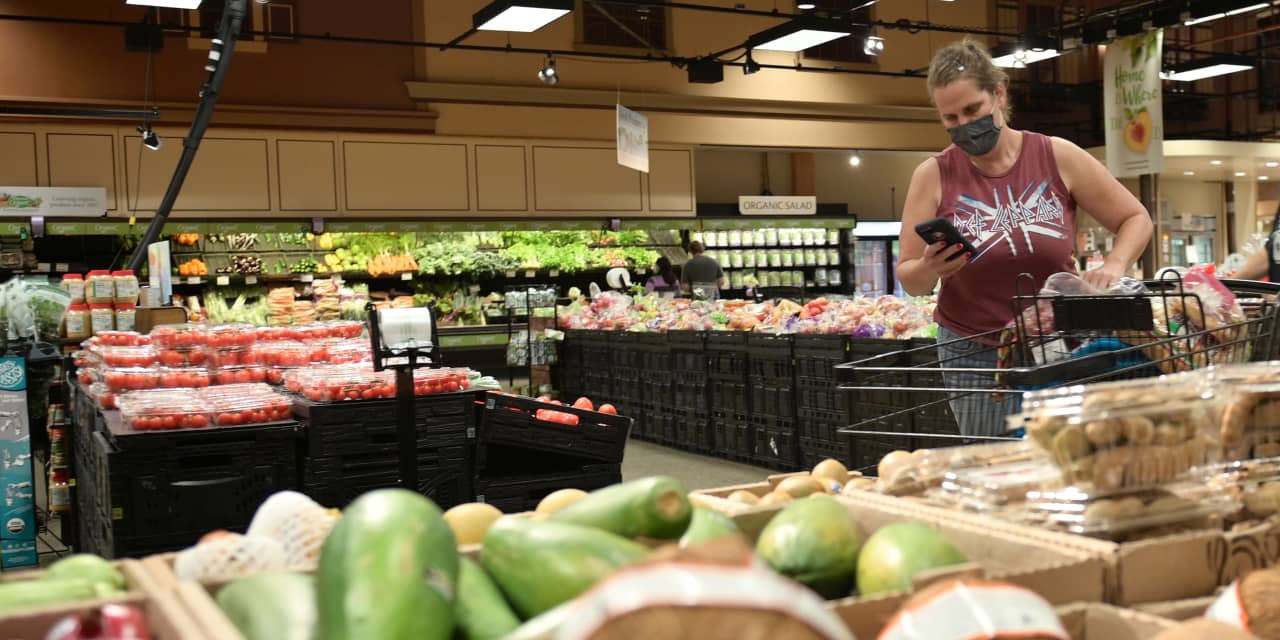Grocery delivery app Instacart set a target valuation that was way below its prior funding round in 2021, a sign of companies treading carefully as they test investor appetite for new listings.
The San-Francisco based firm said Monday it’s pricing its shares between $26 and $28 per share. Instacart said it has 279 million shares outstanding as of Aug. 15. Including the stock options and the restricted stock units of 20.45 million and 31.47 million, respectively, the total stock for the purpose of valuing the company comes to 331 million shares.
This makes for a valuation between $8.6 billion to $9.3 billion, far below its valuation of $39 billion set in a fundraising round in 2021. The company’s internal valuation last year in March was $24 billion, and in July was reduced to $15 billion to reflect the selloff in technology stocks, a person familiar with the matter had told Barron’s.
Maplebear, better known as Instacart, filed to go public on Aug. 25 and list under the ticker CART. Instacart, British chip designer Arm and automation platform Klaviyo are all setting the stage for what investors believe could be a wave of IPOs in the coming months—possibly with lower equity valuations than they could command earlier. Arm debuts this week and has said that the IPO could garner up to $4.87 billion in fresh capital.
The market for IPOs isn’t doing too great. There were 615 IPOs globally in the first half of this year, down 5% from a year earlier, and capital raised from those deals fell 36% versus a year ago, according to Ernst & Young.
The blame could be partly ascribed to high interest rates and an uncertain economy that have made investors turn their head away from new listings. Online mortgage lender Better.com, which went public merging with a special purpose acquisition company, closed its first trading day at $1.15 on Aug. 24, down 93%, from the previous close of $17.45 when the SPAC was still trading on the stock exchange.
Instacart, which was founded in 2012, lets independent contractors browse through orders and pick a shopper whose order they would like to fulfill. It became more prominent as Americans avoided visiting stores during the Covid-19 lockdowns.
Write to Karishma Vanjani at karishma.vanjani@dowjones.com.
Read the full article here













Leave a Reply